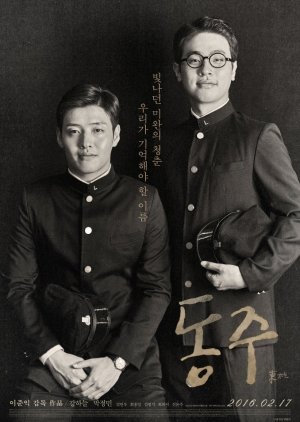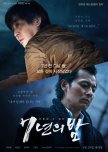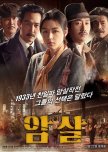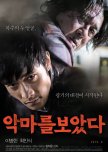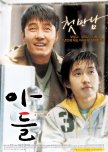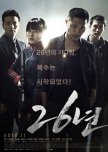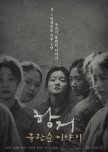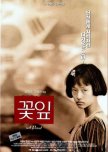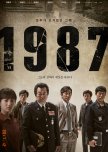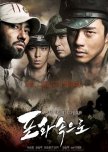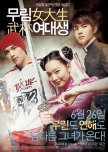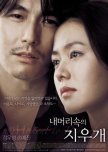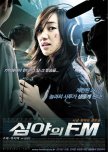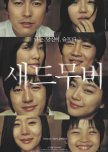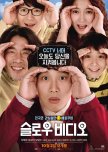
Dong Ju: The Portrait of a Poet is an eloquent story woven around the poet's own insightful words. Shot in black and white, the monochrome film beautifully fits the quiet, intense mood of the short lives of these two young men.
I will leave the historical aspect of this film to those who have a personal stake in it or are more well versed in it than I am.
This film is as much about Yun Dong Ju's cousin and revolutionary, Song Mong Gyu, as it is the poet. Their lives are intertwined, two different ideals in how to resist during a time of hated occupation. One willing to use a gun, the other a pen though at times those lines blur. Their friendship though challenged never waivers.
The story begins and ends with the young men in prison. The present takes place during Yun's interrogation by the Japanese. As Yun is questioned, the past is revealed to show the steps they took to end up in prison. Quoting Yun's poetry to the corresponding events paints the conflicted feelings he had over his role during the dark times and his attempt to find hope in the moment. The tripod of present, past and poetry is perfectly balanced.
Kang Ha Neul gives a restrained and poignant performance as Yun's younger self and later as the tortured prisoner knowing death is imminent, reflecting on his actions and inactions. All the performances are good but his stood out as the titular character.
Dong Ju is an elegantly filmed story of an inelegant and agonizing time told through the courage, defiance and beauty of poetry and a poet.
Prelude
Wishing not to have
so much as a speck of shame
toward heaven until the day I die,
I suffered, even when the wind stirred the leaves.
With my heart singing to the stars,
I shall love all things that are dying.
And I must walk the road
that has been given to me.
Tonight, again, the stars are
brushed by the wind.
-Yun Dong Ju
Esta resenha foi útil para você?

Me pareció super interesante al conocer una parte de la historia que no conocía y me hizo entender mucho más el odio y resentimiento que aún guarda el pueblo coreano hacia los japoneses.
PD: creo que empezare a buscar y leer poesía coreana, es mucho más sensitiva en comparación a las que he leído hasta ahora.
Esta resenha foi útil para você?

"하늘과 바람과 별과 시"
The movie has a feel of old black and white pictures coming to life. The camera is a careful observer and doesn't make unnecessary movements. It's a lot like a theater play that relies mostly on the actors performances, and those are amazing!🔸️I feel like it's the right way to approach such complicated topic as Japanese rule and tragic life stories of people who lived in another century. We have to keep a respectful distance to remember that there is no going back, and therefore the history lessons have to be learned. This distance also makes the movie very lyrical, with poetry recited over the scenes, expressing Dong Joo's thoughts and feelings and creating the flow.
It was a bit hard to understand the potential goals and motivations of the characters, but now poetry makes sense to me.
Esta resenha foi útil para você?

